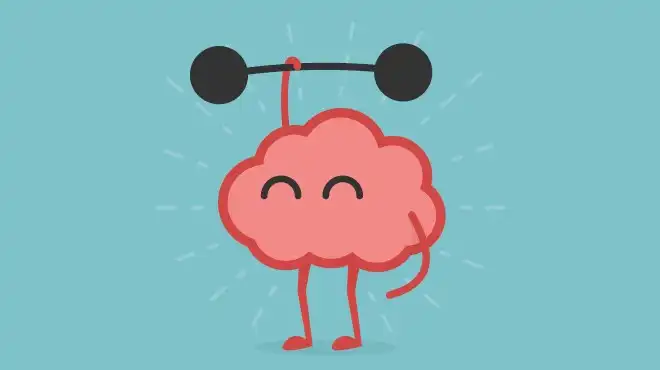In today’s world, it’s hard to find time to exercise. Between work, family, and other commitments, it can be difficult to squeeze in even 30 minutes of physical activity a day. But, on the other hand, if you’re looking for a way to boost your brain power and keep your memory sharp, then exercising may be the answer you’ve been searching for.
Exercise has been shown to improve memory and cognitive function in people of all ages. In fact, studies have found that individuals who perform regular aerobic exercise have better working memories than those who don’t.
So, if you are trying to get indulged in any type of exercise you need to purchase something highly comfortable and should make the best choice for gym outfits that help in supporting your exercise during your exercise sessions.
While some people think that lifting weights makes you dumb or reduces your ability to learn new things, this is not the case at all! Strength training has been shown to improve concentration and focus as well as increase your brain’s gray matter, the part of the brain responsible for processing information by up to 2 percent over an 8-week period.
So, how exactly does exercise affect our brains? Here are seven easy and natural exercises which I will discuss in this article that will keep your brain in shape.
Importance Of Naps For Your Brain

Napping is good for the brain and can improve memory, mood, and performance.
A nap of 30 minutes can help you become more alert and improve your mood. It can also help prevent some of the problems that arise when you are sleep deprived.
Naps are most effective if they are taken during the early afternoon when it is time for the body to prepare for sleep at night. Naps should be taken in a quiet, dark room, with no distractions such as noise or light.
The ideal length of time for a nap is 20-30 minutes, but shorter naps may still be beneficial if they are taken at the right time of day.
Importance Of Journalizing For Your Brain
We’ve all heard that a healthy body promotes a healthy mind, but did you know that the same can be said for our brains? Keeping our minds active and sharp helps us stay focused and feel more energetic. In fact, research shows that journaling can help with memory and cognition.
How does journaling help to keep your brain in shape?

Because it forces us to think about our day, we are forced to focus on what we have done and what happened throughout our day. By doing this, it creates more connections within our brain which promote better memory and concentration. When we write down an entry in our journals, it also helps us remember things better because we are creating new pathways in our minds by writing them down or reading them again later on down the road when it’s time for a review!
Some tips for getting started with journaling
- Start small by writing down one or two sentences at first about something that happened the day or an event that happened during the day before writing down more. This will help your brain get used to writing things down and will also help you remember what happened later on in the day.
- Try to write at least once every day.
- Use different colors in your journal so that it is easier for you to find certain entries later on when you are reviewing them (this is especially helpful if you have a lot of entries).
Also read this : 7 Key Factors You Should Consider When Buying Mangalsutra
How Does Playing Music Help Your Brain To Get Sharp?
Playing music is good for your brain. It’s been linked to preventing dementia, improving depression, reducing stress, and even benefitting your heart. The benefits are so profound that playing music is now used as a therapy for people with Alzheimer’s disease.

But what does this mean for regular people? How does playing music help you keep your brain in shape?
In short, music activates many areas of the brain in ways that other activities don’t. This helps build cognitive skills and keeps you sharp as you age.
Playing an instrument has been shown to improve fluid intelligence and the ability to solve problems using common sense or personal experience even more than reading or doing math puzzles. And it can do this even if you’re not great at playing an instrument.
Research has also found that musicians tend to have better verbal memory (the ability to remember words) than non-musicians do, suggesting that playing an instrument may help protect against cognitive decline as we get older.
How Does Sleeping Help Your Brain To Get Sharp?
Sleep is important for your memory and learning ability. It makes you feel refreshed and more productive in the morning. The brain stops working when you sleep and goes into standby mode. This is why you should get at least 7 to 8 hours of sleep every night.
The brain needs time to process all the information that it receives during the day, so it needs time to do that! You won’t be able to learn new things or remember what happened if you don’t get enough sleep.

Sleep also affects how our brains process information and make decisions. For example, researchers have found that when people were deprived of sleep they performed poorly on tasks that required working memory or attention control but not on tests of long-term memory or creativity. This suggests that sleep affects different aspects of cognition differently.
Some scientists also believe that dreams may help us process emotions and learn from past experiences by acting as a virtual reality simulator for our brains.
In fact, some studies have found that people who report more vivid dreams tend to be better at solving problems creatively because they have greater access to their unconscious thoughts, feelings, and impulses during their dreams than those who don’t dream as much.
How Does Exercise Help Your Brain To Get Sharp?
One of the most important things a person can do to prevent cognitive decline as they age is to get regular exercise. Exercise has been shown to improve blood flow and increase the production of new brain cells.
So, if you are trying to incorporate some exercise into your routine, you need to purchase sweat-wicking and high-quality athletic wear in order to make your workout session more productive.
Benefits of regular exercise.
Exercise gives your brain a workout that makes it stronger and more efficient. It increases blood flow, which supplies oxygen and nutrients to the brain while removing toxins like lactic acid. This improves concentration, memory, creativity, and problem-solving skills while reducing stress levels
Physical activity stimulates the release of endorphins in the brain which help to reduce pain perception and feelings of depression and anxiety.
Exercise boosts serotonin levels, this neurotransmitter is linked with feelings of happiness.
Exercise improves sleep quality because it reduces stress hormones like cortisol and adrenaline which play an important role in regulating sleep patterns. Regular physical activity has been shown to slow down cognitive decline by up to 65%.

